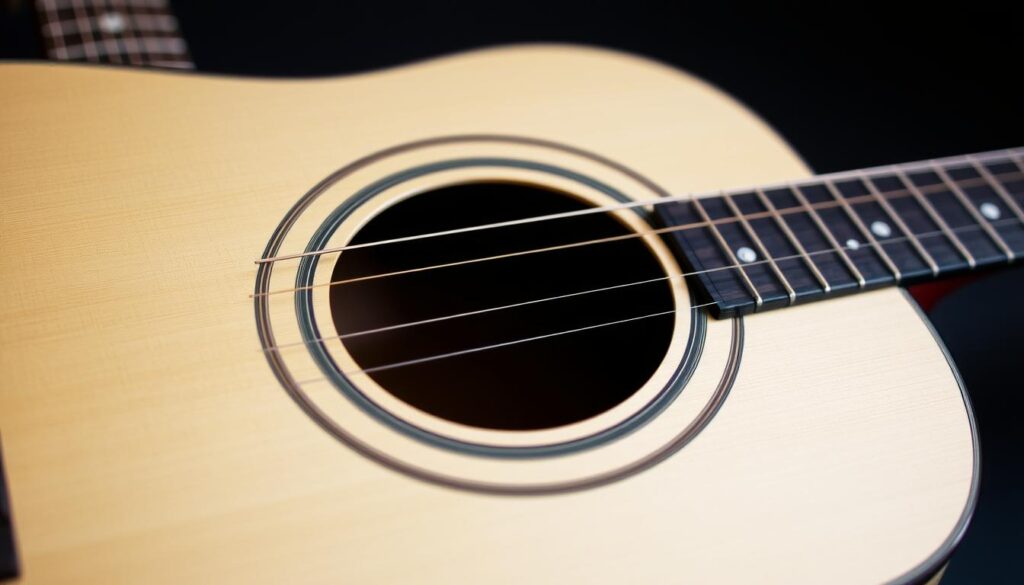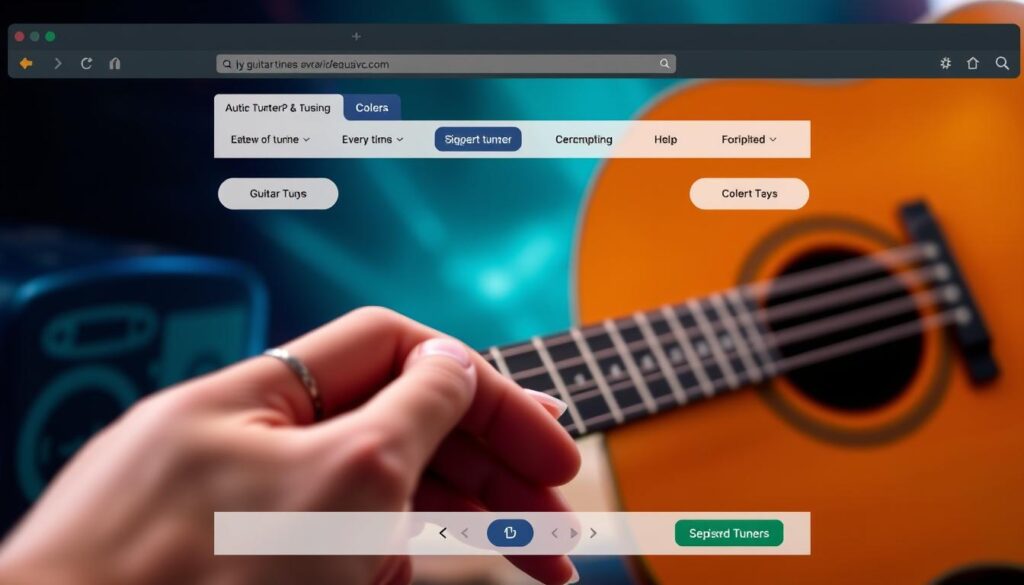Advertisements
The guitar It is a versatile and popular instrument that has captivated diverse cultures and musical styles. Its ease of transport and cost-effectiveness make it accessible to many. If you're considering how to play guitar, you've come to the right place.
Starting to play this instrument may seem challenging, but with a proper guide, you can advance effectively. You don't need previous musical knowledge to begin your musical journey. Constant practice and patience are key in the process of learning.
Advertisements
You will discover that playing the guitar It's not just a technical skill, but also a form of artistic expression that will last a lifetime. With daily dedication, you can develop the skills to play your favorite songs.
The basics for starting to play guitar
To play the guitar effectively, you must familiarize yourself with its parts and functions. Understanding the basics will help you get the most out of your practice and improve faster.
Advertisements
See also
- How to learn Zumba at home effectively
- Tea for More Energy: 7 Best Options
- Easy Loans for Retirees: Financial Solutions for You
- Learn to Play Guitar: A Step-by-Step Guide for Beginners
- How to use Wi-Fi from anywhere even if you don't know the password
Choosing your first guitar
When choosing your first guitar, you should consider several factors. The type of music you want to play is crucial. If you like classical or flamenco sounds, a nylon-string guitar is ideal. For rock, pop, or country, a steel-string guitar is more suitable.

String Types: Nylon vs. Steel
Nylon strings are easier on the fingers and are commonly used on classical and flamenco guitars. Steel strings, on the other hand, produce a brighter sound and are used on acoustic and electric guitars.
The choice between nylon and steel strings depends on the style of music you want to play and your personal preference.
Knowing the parts of the guitar
A fundamental step in learning the guitar is familiarizing yourself with the different parts of the instrument. The standard guitar has six strings, arranged from bottom to top.
- Knowing the parts of the guitar is essential to understanding instructions and communicating correctly.
- The body of the guitar is the sound box that amplifies the sound.
- The neck is the elongated part where the frets are located.
- The head contains the tuning pegs.
- The six strings are numbered from bottom to top.
By understanding the parts of the guitar, you'll be able to follow instructions and communicate effectively with other musicians.
Basic techniques for learning to play the guitar
Mastering the guitar involves understanding and applying several essential techniques from the very beginning. To begin, it's crucial to properly tune your guitar, adopt proper posture, and learn the correct hand positions for forming chords and playing rhythms.
How to properly tune your guitar
Tuning your guitar is the first step to playing correctly. You can use a online guitar tuner to make sure your strings are on the right note. Standard tuning is the most common for beginners.

Correct posture and instrument holding
Maintaining proper posture while playing the guitar is vital to avoiding injuries and improving your technique. Hold the guitar comfortably and make sure your back is straight.
Left hand position: forming chords
The left hand is used to press the strings at the correct frets to form chords. Place your fingers close to the frets and press firmly. Chords are essential for playing complete songs.
Right Hand Position: Strumming Techniques
The right hand is responsible for rhythm and dynamics when playing the guitar. For basic strumming, keep your wrist relaxed and allow a natural up-and-down and down-and-down motion. You can use the fingernail and pad of your index finger or a pick.
- The right hand plays the beats and fingerings.
- The simplest strumming begins with a downward motion followed by an upward motion.
- Rhythmic patterns are built by combining movements with different accentuations and speeds.
Learn to play the guitar: first chords and songs
Once you've tuned your guitar and practiced the correct posture, you're ready to play your first songs. You can now visit our website. numbers and chords to choose songs with simple chords or new challenges.
Essential chords for beginners
Basic chords like G, D, Em, C, and Am are essential for any beginner. These chords allow you to play a wide variety of songs and are the foundation for learning more complex chords.
How to read tablatures and chords
Tabs and chord charts are essential tools for any guitarist. Tabs show you where to place your fingers on the fretboard, while chord charts tell you the chords and rhythms to follow.
Practical exercises to improve your technique
Practicing strumming exercises and chord changes will help you improve your technique. Start with simple rhythms and gradually increase the complexity.
5 easy songs for beginners
Some ideal songs for beginners include “Knockin' on Heaven's Door” by Bob Dylan, “La Bamba,” “Zombie” by The Cranberries, “Ojalá que llueva café” by Juan Luis Guerra, and “Wonderwall” by Oasis. These songs use simple chords and basic rhythms, perfect for practicing and improving your skills.
Remember to start slowly, focusing on clean chords and rhythmic precision. As you get more comfortable, you can increase your speed until you reach the song's original tempo.
Conclusion: Stay consistent in your learning
With each practice hour, you get closer to your musical goals. Learn to play the guitar It's an ongoing process that requires patience and dedication. It's essential to establish a daily practice routine, even if it's short (15-30 minutes), as consistency is more effective than long but sporadic sessions.
To make the most of your learningDivide your practice time into sections: warm-up, technique exercises, learning new chords or songs, and reviewing familiar material. Don't be discouraged by initial difficulties; all experienced guitarists went through the same learning process and faced similar challenges.
Complement your learning with resources such as video tutorials, apps, guitar books, and, if possible, some lessons with a teacher who can correct technical errors. You can find more information and resources on our online course, designed to help you learn to play guitar progressively and without the need for prior knowledge.
Remember that the ultimate goal isn't just acquiring a technical skill, but finding a form of personal expression through music that will stay with you for a lifetime. Enjoy the journey and celebrate your small achievements: playing your first complete song, mastering a difficult chord, or maintaining a consistent rhythm are all important victories in your development as a guitarist.






